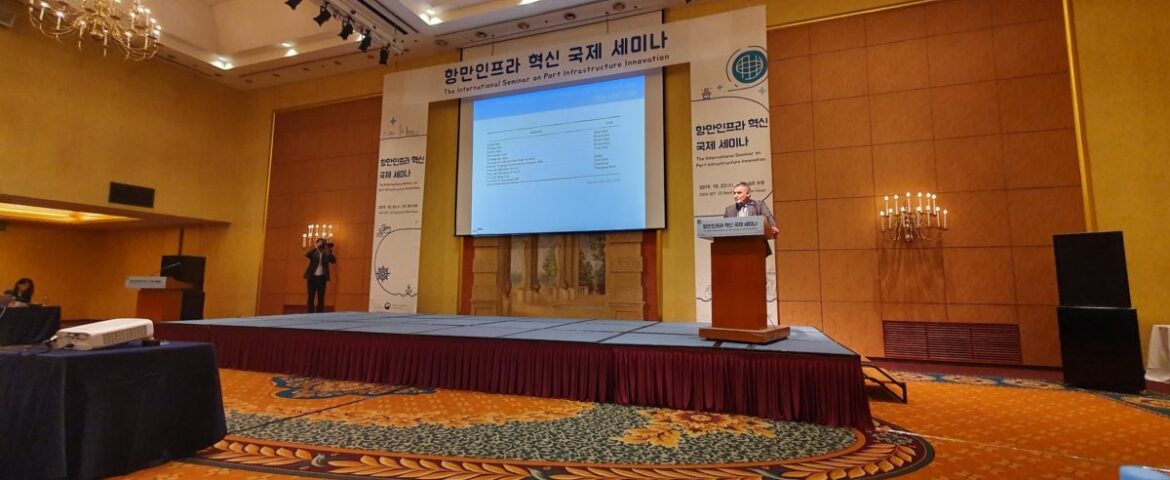Measurement of port performance returned central stage at a special meeting on port infrastructure organised in Seoul hosted by the Ministry of Oceans and Fisheries Republic of Korea and organised the Korean Maritime Institute (KMIA) with the participation of UNCTAD and selected scholars from all over the world.
PortEconomics co-director Thanos Pallis, a member of the high-level Advisory Board facilitating the research efforts of KMI, presented the lessons learnt by two concrete exercises developed in North America and Europe respectively, with the participation of the associations representing port authorities, and the contribution of leading maritime researchers.
The chronologically first exercise, the AAPA (American Association of Port Authorities) Port Customer Service Initiative aimed to an independent third-party assessment of customers and users to enhance port authorities ability to improve port service delivery, via an individualized report to each port that provides best practice scores as well as each port’s scores, and context to user importance – enabling benchmarking for assessing resource allocation.
The most recent exercise, PORTOPIA (Ports Observatory for Performance Indicator Analysis), was developed by European Sea Ports Organisation (ESPO) and 12 partner universities and research institutes. PORTOPIA aimed to develop a sustainable, self-supporting European Port Performance Management Toolkit, validated and endorsed by port industry stakeholders, that provides added value to the industry and its stakeholders by supplying transparent, useful and robust indicators and the contextual analysis thereof, leading to improved resource efficiency, effectiveness and societal support for the European port system.
While these exercises have yet to be endorsed as long-term practices, they provide some useful lessons, and signal both the necessities and potential ways towards a much-needed integrated port performance measurement – to be found in Thanos presentation, which can be downloaded here.












